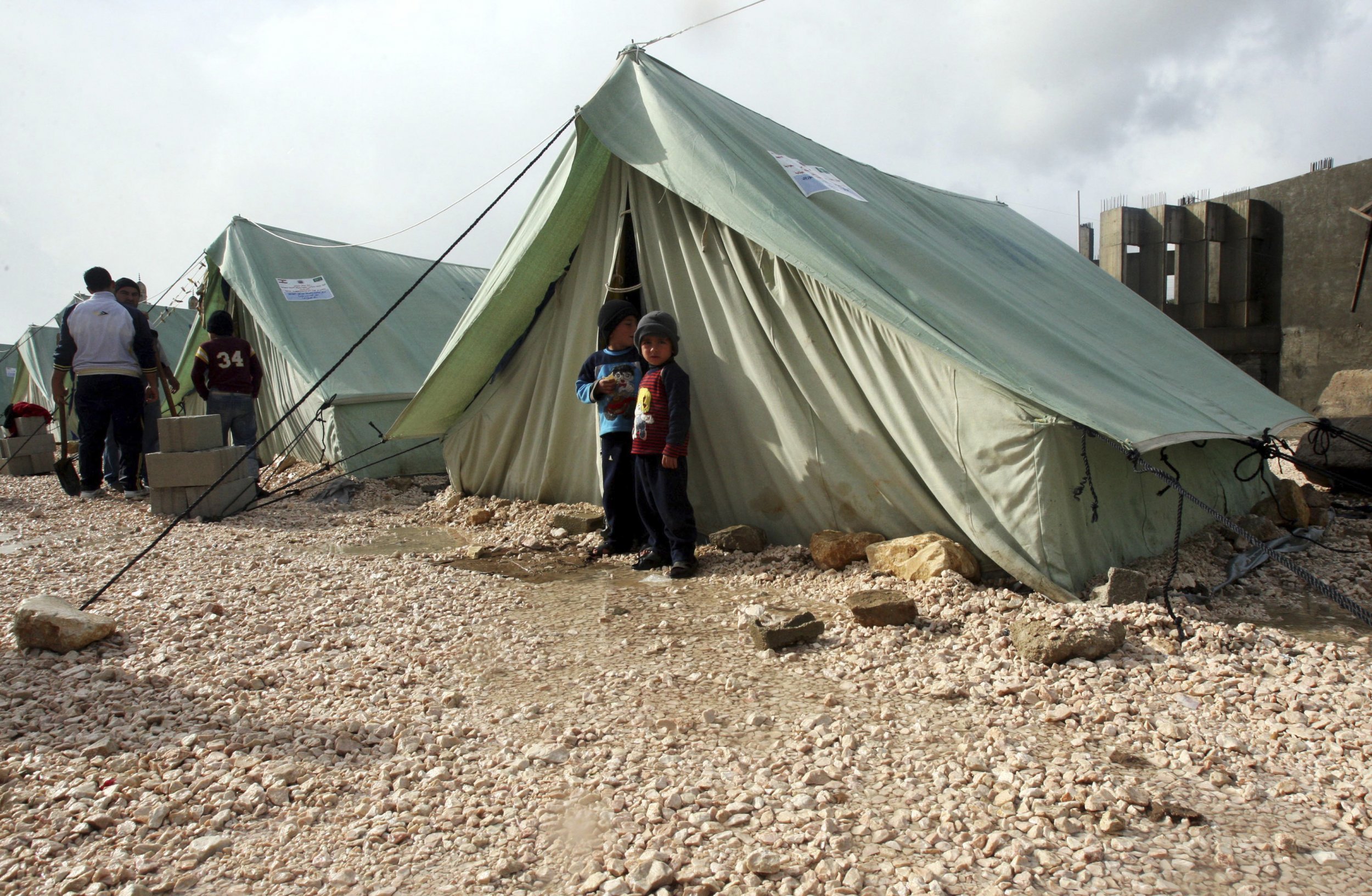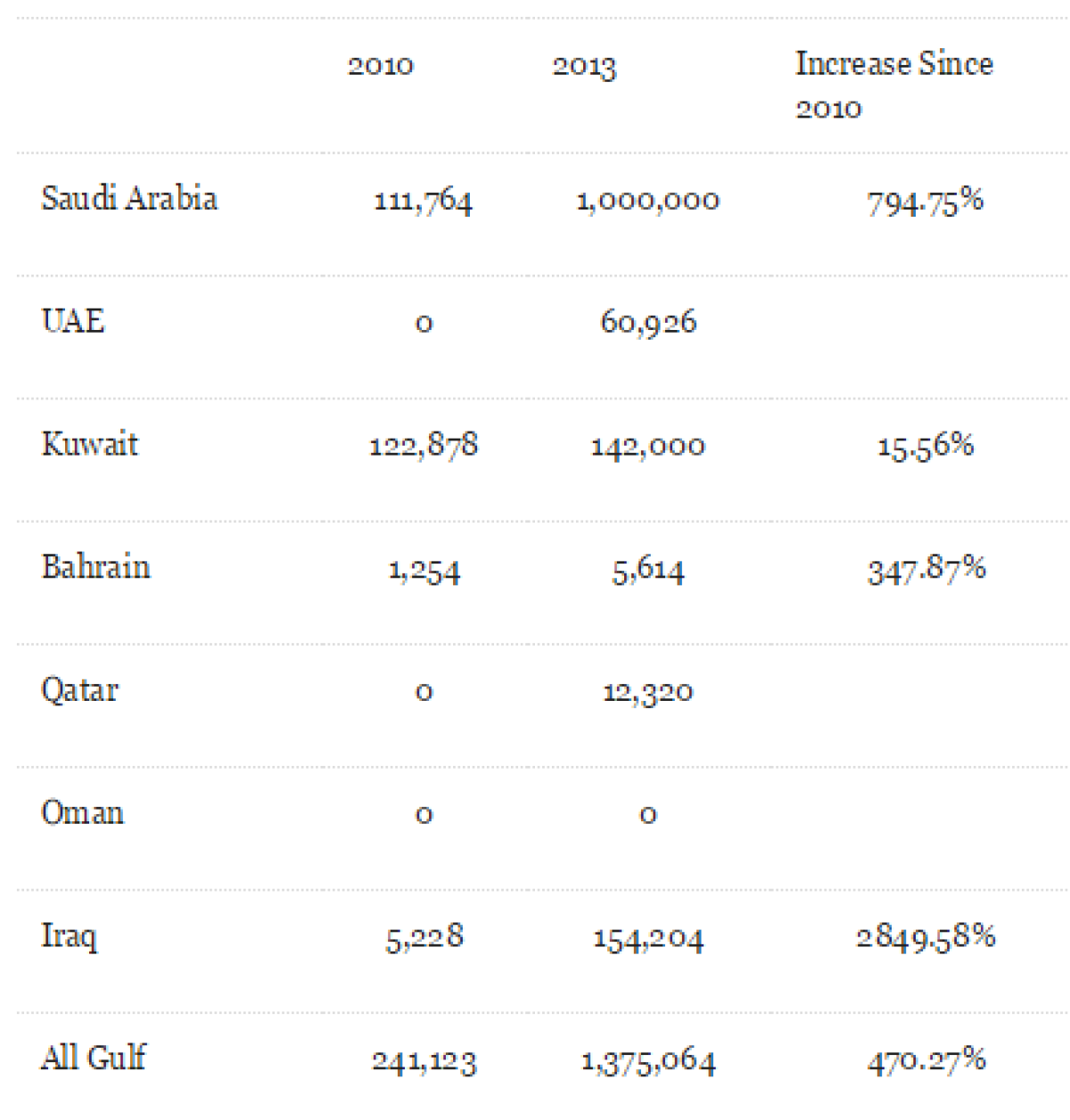
Many more Syrians are living in Saudi Arabia and the Gulf States than at the beginning of the Syrian civil war in 2011.
The World Bank reports that 1,000,000 Syrians resided in Saudi Arabia in 2013, a whopping 795 percent increase over 2010. There were 1,375,064 Syrian migrants living in the Gulf States in 2013, a 470 percent increase over 2010.
Excluding Oman, the 2013 Syrian population in every Gulf State has increased dramatically since right before the beginning of the Syrian civil war.

These Syrians are technically not "refugees," because Saudi Arabia and the other Gulf States are not signatories to the 1951 UNHCR convention that created the modern international refugee system.
NGOs that work in the region are harshly critical of the Gulf States' response to the Syrian crisis. Gulf State spokesmen also haven't gotten their stories or numbers straight when explaining their policies.
Nabil Othman, acting regional representative to the Gulf States at the UNHCR, said Saudi Arabia has accepted 500,000 Syrian refugees, but called them "Arab brothers and sisters in distress." Kuwait extended the residency permits for Syrians stranded there. Spokesmen for the Gulf States have issued other statements claiming that they have accepted many Syrian refugees.
Most likely, Syrians living in the Gulf States are largely workers and some could be related to the Syrian communities in Saudi Arabia and Kuwait that existed before the civil war.
Legal conventions, treaties and the technical definition of the word "refugee" aside, there are many more Syrian migrants living in every Gulf State (except Oman) in 2013 than in 2010. Every additional Syrian migrant living in the Gulf States is one fewer potential refugee elsewhere. Many immigrant groups in the 19th and 20th centuries were also refugees, even though there was no legal category for them at the time.
Some Americans and Arab critics argue that the Gulf States should accept more refugees. They should, but that shouldn't blind us to the large number of Syrians who have settled there since the outbreak of the civil war. Gulf State intentions aside, allowing Syrians to live in their territory has helped relieve the humanitarian crisis somewhat.
A note on the numbers and quotes here: The World Bank data may be limited, omit some return flow numbers, be inaccurate in other ways, or/and updated spreadsheets may show a completely different situation. I cannot verify the statements from the Gulf State countries because their publicly available government documents are in Arabic.
Alex Nowrasteh is the immigration policy analyst at the Cato Institute s Center for Global Liberty and Prosperity.
Uncommon Knowledge
Newsweek is committed to challenging conventional wisdom and finding connections in the search for common ground.
Newsweek is committed to challenging conventional wisdom and finding connections in the search for common ground.
About the writer
To read how Newsweek uses AI as a newsroom tool, Click here.








